The South Asia Centre is delighted to announce a series of academic initiatives focused on Sri Lanka. The Centre has hosted public events with experts on Sri Lanka, and supported the establishment of the LSESU Sri Lanka Society in 2018.
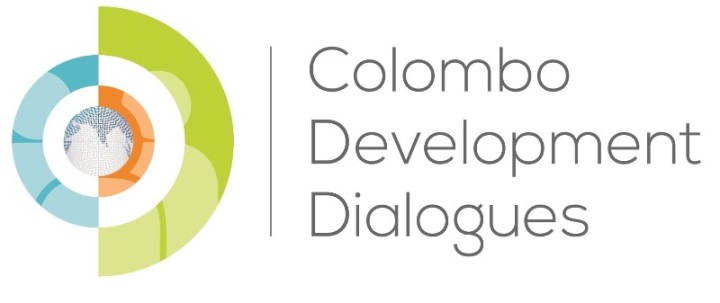
The ‘Colombo Development Dialogues’ is a collaborative initiative between the South Asia Centre and the United Nations Development Programme in Sri Lanka, which brings together a diverse group of academics, thinkers, practitioners, policy-makers, media personnel, grassroots workers &c. Held twice a year -- in April and August, in Colombo -- each Dialogue will discuss relevant issues pertaining to current national/regional priorities in light of the Sustainable Development Goals 2030.
Speaking about the collaboration, Dr Mukulika Banerjee, Inaugural Director (2015-2020), LSE South Asia Centre said: "The partnership we have established with UNDP Sri Lanka gives us an opportunity to facilitate engaging and meaningful Dialogues around focused themes areas of importance to Sri Lanka, with a conscious attention to their wider relevance in South Asia. We are delighted to initiate the Colombo Development Dialogues in collaboration with UNDP, a major knowledge broker in this region, with whom we share several concerns confronting South Asia in what promises to be the ‘Asian’ 21st century.”
Former UNDP Sri Lanka Resident Representative (2014-2018) Mr Jorn Sorensen said: “UNDP is pleased to partner with LSE SAC and the Faculty of Graduate Studies, University of Colombo, to facilitate these knowledge sharing dialogues. Starting this year, we look forward to convening the best academics from all over the world together with our partners, in order to start conversations around vital sustainable human development areas for Sri Lanka, thus contributing to the 2030 Agenda.”
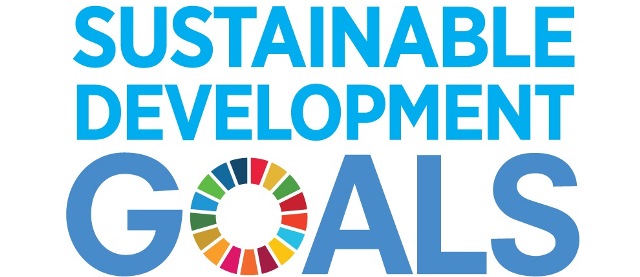
COLOMBO DEVELOPMENT DIALOGUES 4
Public Sector Modernisation in Sri Lanka
Thursday 6 February 2020 | 4.00-6.30 pm | Jubilee Ballroom, Galle Face Hotel, 3, 2 Galle Road, Colombo 00300
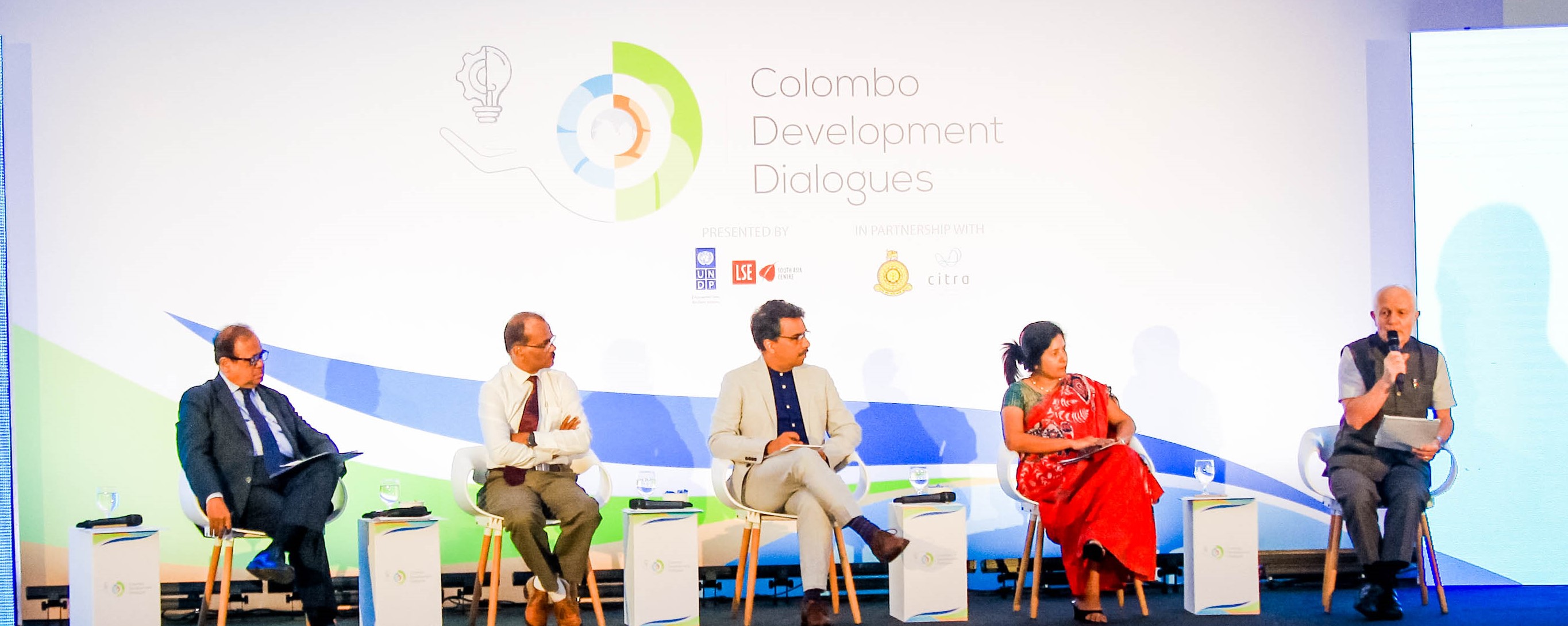
The 21st century has been marked by rapid economic, social, political, technological, cultural and environmental changes that have had a profound impact on communities, cities and countries across the world. Many of these changes are a result of complex challenges that are taking place at an unparalleled pace, and on a dramatic scale -- such as climate change and vulnerability to disasters, increasing urbanisation, and deepening inequalities, against a backdrop of factors like technological progress and a rethinking of the roles of the public and private sector –- and nowhere is this more true than in South Asia. These challenges have rendered it difficult for state institutions (the ‘Public Sector’) to rely on systems of the past (involving, for example, cumbersome and manual data collection and storage processes) leading to a consideration of how to restructure governmental processes and procedures in order to prevent relevance gaps that hinder economic and social progress.
In Sri Lanka, the rethinking of current governance systems and practices keeping pace with the wider challenges in the country has been a point of discussion in recent years. While discussions with higher-ranking public officials often highlight the need to implement performance-based evaluation systems and other such means of incentivizing the sector, there is the danger of such systems translating into bureaucratic metrics once introduced, with little overall impact or improvement in the way in which the government functions. Taking a better look at how the current bureaucracy works, its shortcomings and slippages, and identifying how to use modern technology to increase efficiency, nurture a conducive environment for innovation, reduce the scope for corruption while increasing transparency and accountability, and design an incentive framework that encourages meritocracy and ‘intrapreneurship’ to increase the capacity of the government within the existing structure is something that Sri Lanka has yet to seriously engage in. Accordingly, Colombo Development Dialogues 4 debated modernization in the Public Sector, increasing the capacity of the government to better understand the complex challenges faced by the country, and the ways in which we can enable and empower such institutions and individuals to provide solutions with human-centred approaches.
Panelists: Professor Michael Moore (Professional Fellow, Institute of Development Studies, University of Sussex), Ms Chandima Wickramasinghe (Additional Secretary to the President, Presidential Secretariat), Mr Sudath Ranugge (Chairman, National Salaries and Cadre Commission), Hon. Susil Premajayantha (State Minister of International Cooperation, Government of Sri Lanka) and Professor Ali Cheema (Associate Professor in Economics and Political Science, Lahore Institute of Management Sciences (LUMS), via Skype).
Discussants: Mr Rajiv Wijeweera (Senior Economic Advisor, UNDP Sri Lanka), Mr Waruna Sri Dhanapala (Additional Secretary - Development Digital Infrastructure and Information Technology, Division Ministry of Defence, Government of Sri Lanka), Mr Easwaran Rutnam (Editor, The Sunday Gazette) and Mr Wasantha Deshapriya (Former Director-General, Sri Lanka Institute of Development Administration).
The Dialogue was moderated by Dr Nilanjan Sarkar, Deputy Director, South Asia Centre.
Watch the video on Facebook here.
COLOMBO DEVELOPMENT DIALOGUES 3
Refugees, Asylum-seekers and the 2030 Agenda
Friday 5 April 2019 | 4.00-6.30 pm | Oak Room, Cinnamon Grand Hotel, 77 Galle Road, Colombo 00300

The global refugee crisis has taken centre stage as the world is experiencing the highest levels of displacement on record, with a staggering 68.5 million people around the world being forced to leave their homes. Globally, the gap between humanitarian funding and the needs of refugees and asylum-seekers is widening, despite refugee situations increasing in scope, scale and complexity, and requiring holistic and humane solutions and support. There is also increasing recognition of the developmental, social, political and economic challenges faced by host countries with refugee situations.
The 1951 Convention on the Status of Refugees and its 1967 Protocol features fundamental principles of non-discrimination, non-penalization and non-refoulement, as well as minimum standards pertaining to the treatment of refugees, which Sri Lanka is yet to accede to. In December 2018, Sri Lanka expressed its desire to abide by the commitments stipulated in the recently adopted Global Compact on Refugees, which includes ensuring the right to employment and the right to education. The Government provides asylum space until solutions are found, with UNHCR processing asylum claims, the process of which can take up to 2 years. At present, a little over half of such individuals in Sri Lanka have been granted refugee status, while the rest remain asylum-seekers. Such refugees and asylum-seekers, who are primarily of Pakistani and Afghan origin and are under the age of 45, are not supported by a legal framework for employment. UNHCR provides a minimum monthly subsistence allowance to recognised refugees to pay for basic needs; asylum-seekers are not provided this allowance. As such, self-reliance is difficult to achieve, which not only affects psycho-social and physical well-being, but also family structures within refugee communities. Refugee and asylum-seeker children also do not have official access to education, and refugee children are provided primary school education by UNHCR. This Dialogue will be a forum to discuss and share how all relevant stakeholders can work together, in terms of ensuring basic standards of living while adhering to international commitments, while balancing the challenges refugee situations can introduce.
Panelists: Ms Menique Amarasinghe (Head of National Office, UNHCR Sri Lanka), Mr Ravinatha Aryasinha (Secretary, Ministry of Foreign Affairs), Ms Susan Bird (Senior Regional Livelihoods Officer, UNHCR, Bangkok) and Dr Christopher Smith (Independent Researcher, and Senior Research Fellow, Institute of Commonwealth Studies, London).
Discussants: Ms Chandrika Karunaratna (Senior Technical Specialist – Rule of Law, Access to Justice & Human Rights, UNDP), Mr Asan Saleem (Senior Programme Manager, Muslim Aid Sri Lanka Field Office), Mr Prasad De Silva (Assistant Director General, Employers' Federation of Ceylon), Mr Tony Seniwiratne (Senior Advisor, ZOA Sri Lanka) and Ms Namini Wijedasa (Assistant Editor, The Sunday Times).
The Dialogue was moderated by Dr Nilanjan Sarkar, Deputy Director, South Asia Centre.
Watch the video on Facebook here and read the Working Paper here.
COLOMBO DEVELOPMENT DIALOGUES 2
Water Security and Climate Variability
Friday 31 August 2018 | 4.00-6.30 pm | Grand Ballroom, Hilton Colombo, 2 Sir Chittampalam A Gardiner Mawatha, Colombo, 00200, Sri Lanka
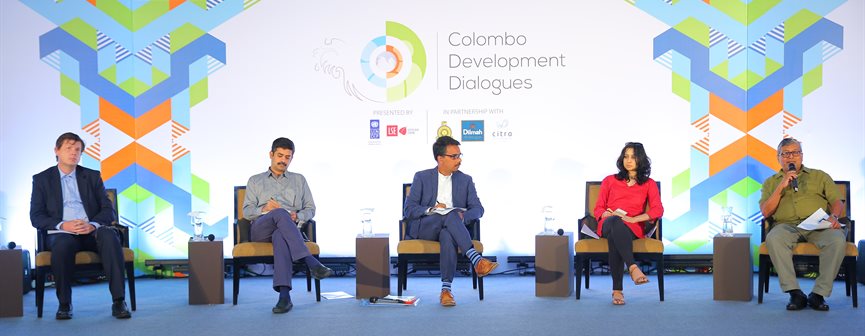
As the world battles the effects of global warming and climate variability, the critical nature of water resources has come centre-stage. Natural resources like water are under extreme pressure in contemporary times; the problems are especially acute in South Asia where this is complicated further by the challenges posed by the lack of sustainable development options, iniquitous access to water, an increasing and aging population, expanding agriculture, and pollution. The longer-term repercussions of depleting water resources are frightening; for an island nation like Sri Lanka, it is especially serious considering its other challenges (such as reduction in estimated annual rainfall, coral and sand mining, marine pollution, energy and irrigation demand, groundwater pollution, wastewater management, etc).
Examining the issues that confront water resources, and engaging with water security is therefore of critical concern, and should be considered by the government while planning its developmental, economic and social policies and programs. In Sri Lanka, natural phenomena like recurring floods and droughts, and social inadequacies like uneven availability of safe drinking water are just a couple of symptoms of the need to address long-term, sustainable, and comprehensive water management policies. Water in Sri Lanka has complex management challenges with nearly 40 statutory bodies responsible for water resources. The lack of a coordinated approach and strategy will have a severe impact on Sri Lanka and its peoples as it moves forward. This Dialogue will consider the question of water security in Sri Lanka through its specific problems, but also in comparison to other countries in South Asia and, finally, through climate variability and ‘virtual’ water, which underline the need to continuously search for newer ways to understand the critical nature of the problem that confronts us all.
Panelists: Professor Tony Allan, Emeritus Professor, Department of Geography, King’s College London [via Skype]; Dr Timotheues Gaasbeek, formerly WASH Advisor, ZOA Sudan; Dr Giriraj Amarnath, Research Group Leader for Water Risks and Disasters, International Water Management Institute; Dr P. B. Dharmasena, Deputy Director of Research, Department of Agriculture, Sri Lanka; Dr Soumya Balasubramanya, Senior Researcher (Environment and Development Economics), International Water Management Institute.
Discussants: Mr Sydney Gajanayake, Chairman, Water Resources Board, Ministry of Irrigation, Water Resources Management and Disaster Management, Government of Sri Lanka; Ms Dilrukshi Handunnetti, Consulting Editor, Daily/Weekend Express, and Global WASH Media Award Winner 2014; Ms Shiranee Yasaratne, Advisor, Biodiversity Sri Lanka; Ms Tharuka Dissanaike, Policy and Design Specialist (Environmental Sustainability), UNDP Sri Lanka; Mr Jude Kasturi Arachchi, Head of Sustainability, Jetwing Hotels.
The Dialogue was moderated by Dr Nilanjan Sarkar, Deputy Director, South Asia Centre, LSE.
Watch the video on Facebook here and read the Working Paper here.
COLOMBO DEVELOPMENT DIALOGUES 1
Integrated Development Impact through Partnerships and Innovation
Wednesday 4 April 2018 | 4.00-6.30 pm | Oak Room, Cinnamon Grand Hotel, 77 Galle Road, Colombo 00300
This first Dialogue explored the importance of incorporating human-centred design processes when creating citizen-centric and organic solutions to the country’s development issues.
Watch the video on YouTube here, and read the Working Paper here.
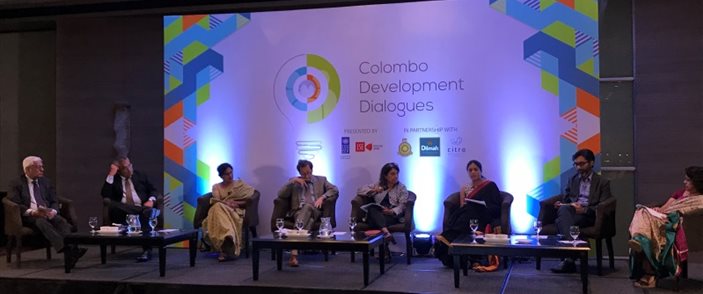
Panelists: Dr Rajesh Venugopal, Assistant Professor, Department of International Development, LSE; H.E. Tung-Lai Margue, EU Ambassador to Sri Lanka and the Maldives; Ms Dulani Sirisena, Program Manager (Economic Development), Australian High Commission, Colombo; Dr Maneesha S. Wanasinghe, Senior Lecturer, University of Colombo; Mr Carl Cruz, Chairman, Unilever Sri Lanka; Ms Sonali Dayaratne, Policy and Design Specialist, UNDP Sri Lanka; Dr Indrajit Coomaraswamy, Governor, Central Bank of Sri Lanka.
Discussants: Professor Ajith de Alwis, Coordinating Secretariat for Science, Technology and Innovation, Sri Lanka; Dr Dushni Weerakoon, Institute of Policy Studies of Sri Lanka, Colombo; Ms Smriti Daniel, Journalist; Mr Thilan Wijesinghe, Ministry of Finance, Government of Sri Lanka.
The Dialogue was moderated by Dr Mukulika Banerjee, Director, LSE South Asia Centre.
PAST EVENTS:
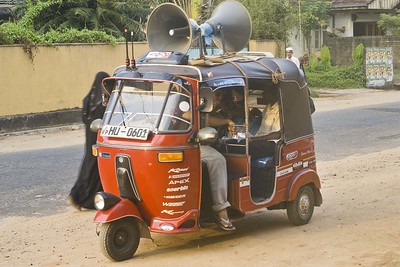
Elections 2019: What next for Sri Lanka?
Monday, 25 November, 6.30pm
On Saturday, 16 November Sri Lankan voters went to the polls to elect their next President. Against a backdrop of ethnic tensions, deadly acts of terrorism and last year's constitutional crisis, the 2019 Presidential Elections marked a key moment for Sri Lanka's democracy. Gotabaya Rajapaksa, ex-soldier and brother of former President Mahinda Rajapaksa has won with a confident margin of votes. Therefore, we hosted a panel discussion on what the results mean for the country's long-term stability, peace and institutions.
Speakers: Alan Keenan (@AKeenan23) is Senior Analyst & Project Director for Sri Lanka at the International Crisis Group, London; Dharsha Jegatheeswaran (@dharsha_J) is a human rights lawyer and co-founder of the Adayaalam Centre for Policy Research in Jaffna, Sri Lanka; Rajesh Venugopal (@rajeshvenugopal) is Associate Professor in International Development, LSE; Asanga Welikala (@welikalaa) is Lecturer in Public Law at the University of Edinburgh.
Chair: Nilanjan Sarkar is Deputy Director, South Asia Centre, LSE.
To listen to the podcast, click here.
LSE South Asia Summit
10 March 2018
The Centre organised the first-ever LSE South Asia Summit. Dr Ganeshan Wignaraja, Chair of the Global Economy Programme at Lakshman Kadirgamar Institute of International Relations and Strategic Studies (LKI), particpated on the panel 'Is China South Asia's Principal Ally?' and spoke on Sri Lanka. To listen to the podcast, click here.
Banner image credit: Temple of the Tooth, Kandy, Sri Lanka by Mal B (CC BY-ND 2.0).